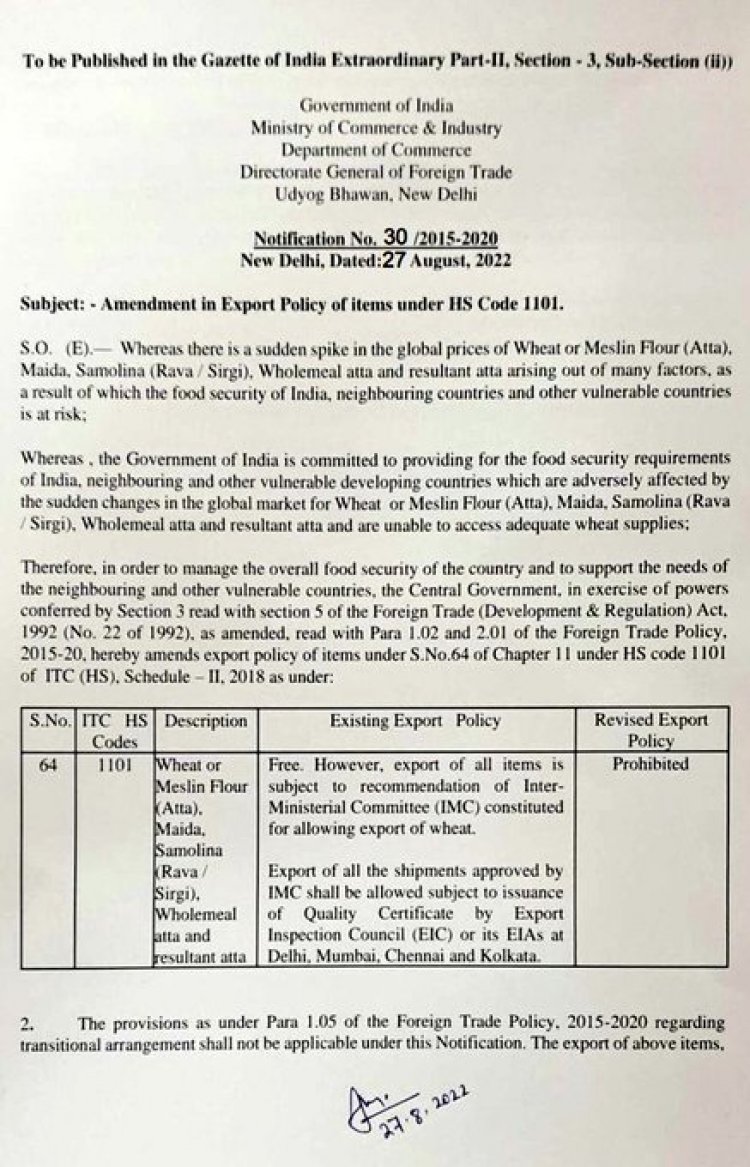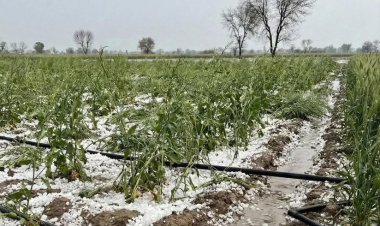Govt prohibits wheat flour export
The Central Government has prohibited the export of wheat or meslin flour (atta), maida, semolina (rava/sirgi), wholemeal atta and resultant atta. The government had to exercise its powers “in order to manage the overall food security of the country and to support the needs of the neighbouring and other vulnerable countries.”

The Central Government has prohibited the export of wheat or meslin flour (atta), maida, semolina (rava/sirgi), wholemeal atta and resultant atta. This was conveyed through a notification issued by the Directorate General of Foreign Trade (DGFT) under the Ministry of Commerce and Industry on August 27.
The notification said that the government had to exercise its powers “in order to manage the overall food security of the country and to support the needs of the neighbouring and other vulnerable countries.”
According to the notification, there has been a sudden spike in the global prices of wheat or meslin flour. As a result, the food security of India, its neighbouring countries and other vulnerable countries is at risk.
The government, says the notification, is committed to providing for the food security requirements of these countries besides India as they have been adversely affected by the sudden changes in the global market and are unable to access adequate wheat supplies.
So far, there had been a policy not to prohibit or put any restrictions on the export of wheat flour. However, in July, a DGFT notification was issued, saying that the government had imposed a condition on exports of wheat flour. “Export policy of wheat flour (atta) remains free but export shall be subject to the recommendation of (the) inter-ministerial committee on export of wheat,” the July notification had said.
The prohibition of the export of wheat or meslin flour was made possible through a Cabinet Committee on Economic Affairs (CCEA) decision on August 25 that approved the proposal for amendment of the policy of exemption for wheat or meslin flour from export restrictions.
Russia and Ukraine are the major exporters of wheat, accounting for around 1/4 of the global wheat trade. The conflict between them led to the global wheat supply chain disruptions increasing the demand for Indian wheat. As a result, the price of wheat in the domestic market showed an increase. In order to ensure the food security of the 1.4 billion people of the country, a decision was taken to prohibit the export of wheat in May 2022.
However, due to the prohibition on the export of wheat, the demand for wheat flour has increased in foreign markets. The exports of wheat flour from India have registered a growth of 200 per cent during April-July 2022 compared to the corresponding period in 2021.
The increased demand for wheat flour in the international market has led to a significant price rise of wheat flour in the domestic market.



 Join the RuralVoice whatsapp group
Join the RuralVoice whatsapp group







































